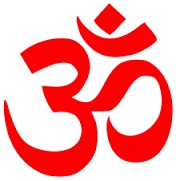

reviews [0] Being a Human - Karma & Dharma [13]
Sanatan Dharma is the philosophy of Vedanta. Vedanta is established on eternal and universal principles which never become obsolete.
These principles have an appeal to the human mind and are applicable to human life under all conditions. The original Vedic texts collected and classified under four distinct headings constitute the four Vedas.
The four Vedas are Rigveda,Samveda, Yajurveda and Atharvaveda.
The Vedic texts are divided by subject matter into two distinct parts: the work section and the knowledge section (karma kanda and gnana kanda).
The work section of the Vedas is devoted to man`s active life, to his search for temporal values, and dwells on the development of life in different stages. In the secular approach to life, one cannot get beyond the cycle of birth, death, and rebirth. Anything that is done for temporal purposes in this world comes under the work section, which is preparatory to the knowledge section.
The purpose of the knowledge section is to take man out of this temporary order and establish him in eternal life, absolute peace and blessedness; to take him away from the cycle of birth and death.
As laid down in the Vedic social codes, the one universal duty of all human beings, irrespective of religious views, social rank, cultural standing, or political status, is the observance of virtue, or Dharma. The word Dharma means "that which upholds." It denotes particularly the "Law or Principle that upholds the world."
Dharma is that which leads to the attainment of happiness and prosperity in this world. It is through Dharma that man can have progress in the true sense, development in the true sense, and achievement and well-being in all fields.
"Virtue protects him who protects her. From virtue arises happiness.Virtue is the only friend that accompanies man beyond death."
Virtue is the stable basis of every aspect of individual and collective life. A man`s physical, intellectual, aesthetic, as well as spiritual well-being rests on the observance of virtue.
Moral conduct sustains man`s inner nature. Unless you observe moral principles - truthfulness, sincerity, charity, modesty etc.- you cannot maintain soundness of mind.
Eventually one becomes convinced that the Supreme Being alone is eternal, all-free, all-perfect; while all else is short lived, bound and imperfect.
Vedanta says there is one Supreme Being who alone is beyond all sorrows, beyond all sufferings, who alone is ever pure, free, immortal - the very perfection of existence.











